The topic was serious but plenty of laughter echoed from the third-floor classroom in Huntsman Hall where more than 50 students gathered on Nov. 8 for the “Ask Me Anything” India and Africa panel discussion. The event was so popular last year that the Wharton India Club and Wharton Africa Student Association decided to have it again as part of Wharton’s MBA International Week this year.
“This week is about celebrating being international, but it’s also always an opportunity to educate,” said Adwoa Konadu Perbi, WG’18, who helped organize the event. “The questions ranged from serious to more social and fun topics, but open communication was the most important thing.”
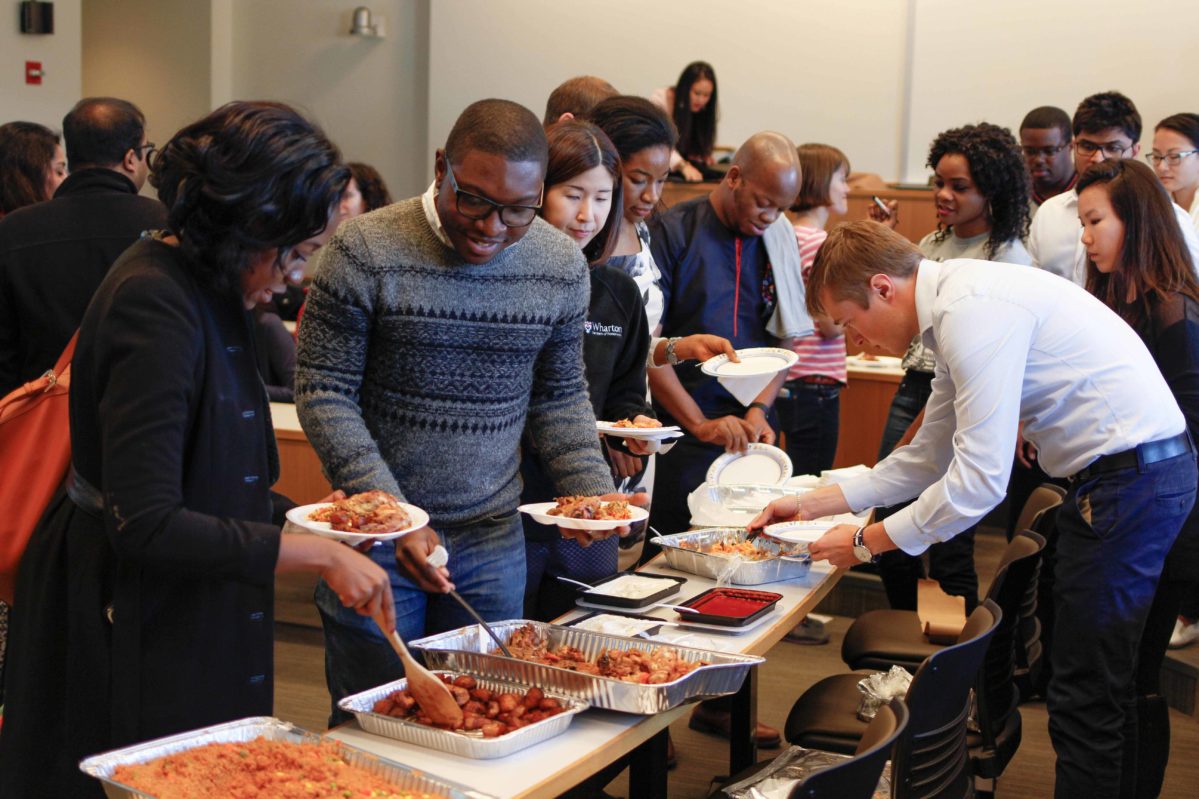
The 90-minute discussion covered a broad range of topics, including the strength of infrastructure, working relations between the Chinese and Africans on the continent, working conditions for Indians in Dubai, the role of women in business, the growing market for private equity investment in Africa, the relationship between India and Pakistan, cultural perceptions, and even differences in the dating scene and cuisine.
“International Week not only celebrates the diverse international representation at Wharton, but it also enables a knowledge transfer about culture and practices in different countries and engages the student body in conversations about diversity,” said Roshni Naidu, WG’18, an officer for the Wharton India Club.
More Than One Answer
The organizers encouraged students to ask any burning questions they had about Africa and India — no matter how controversial the topic — either anonymously through Poll Everywhere or by raising their hands. Six student panelists fielded questions from the audience, sharing their personal experiences and perspectives.
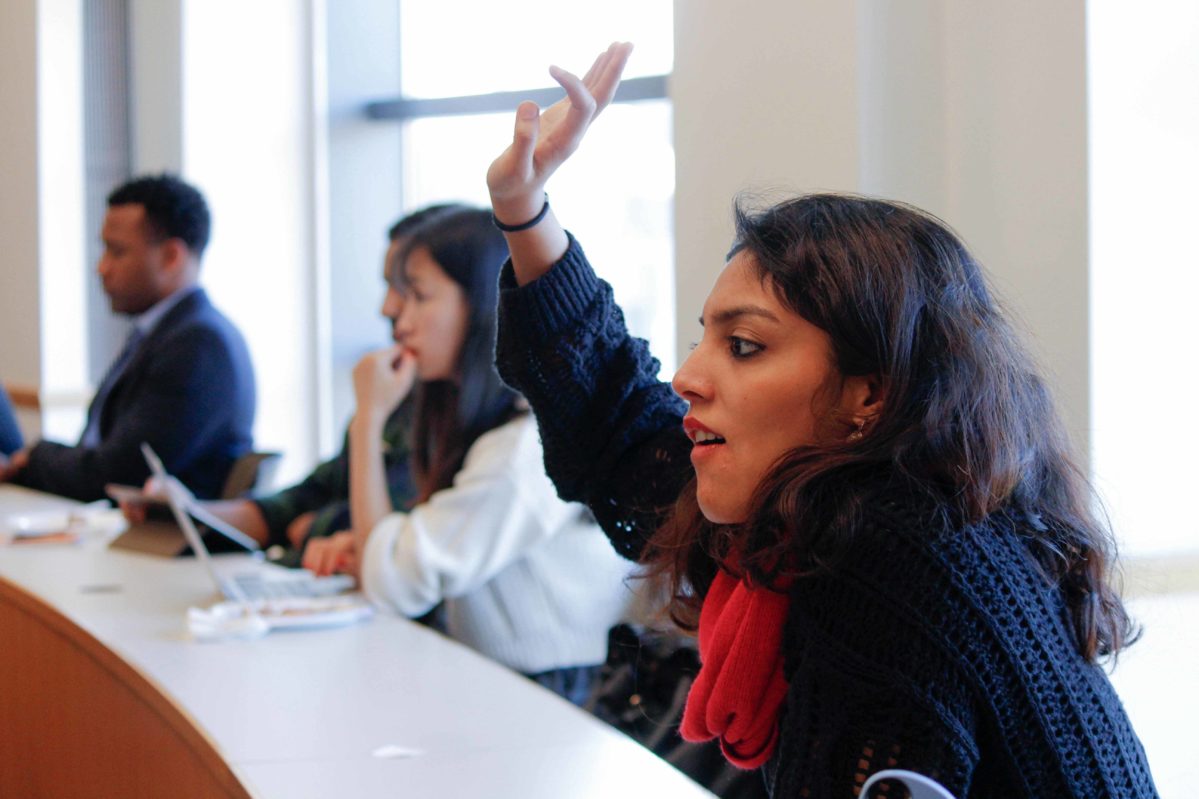
“This allowed students to clear up any stereotypes they may have heard regarding African and Indian culture and society,” said Dan Kimani, WG’18, one of the moderators of the event. “The Africa and India panels included a wide array of voices that featured locals from these regions, individuals with ancestry from these regions, and foreigners that lived in these regions.”
All of the panelists agreed that one of the biggest misconceptions about both areas is that they are homogenous. With 54 countries making up Africa and 29 states and seven union territories in India, the range of answers quickly revealed how culturally, ethnically, and geographically diverse they really are.
“None of these areas is monolithic and even observing the differences among the panelists’ responses (gave attendees a chance) to see that there is no one answer,” Adwoa said.
Here are a few highlights from the conversation:
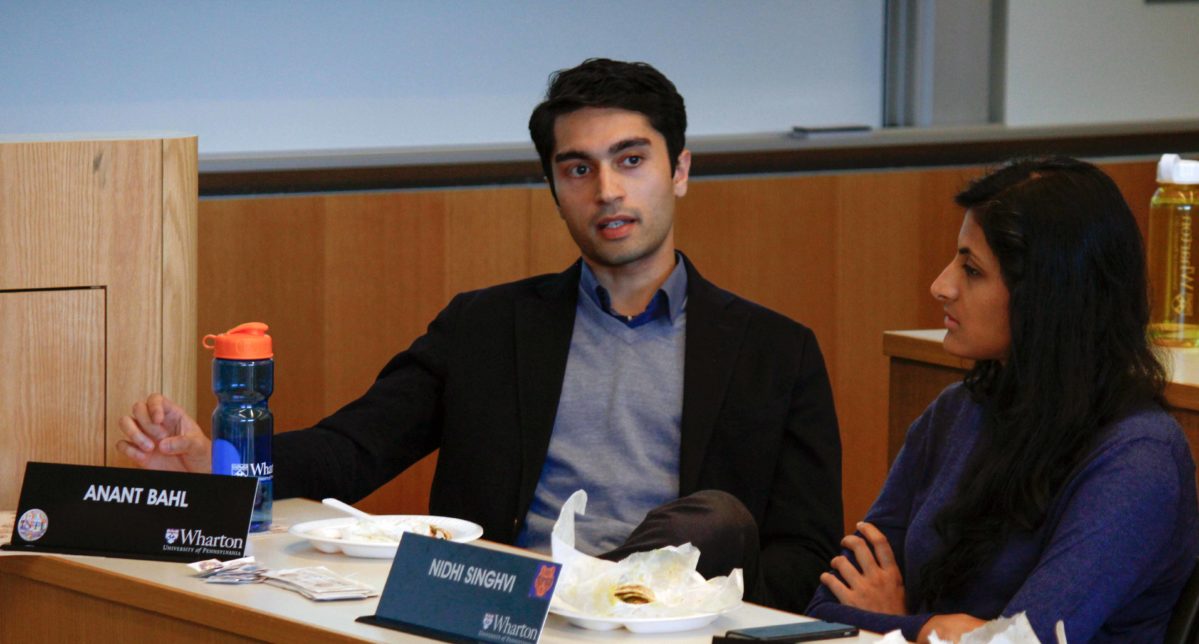
“India is a very diverse country with many state-to-state variations, and there is a big geographical divide between north and south in culture and in food, as much for locals as for tourists. My family is from the north of India. We sometimes go out to a restaurant to have good home-cooked South Indian food and for us it’s as foreign as eating Chinese or sushi.”
Anant Bahl, WG’18, grew up in Bahrain, went to the UK prior to Wharton, and now calls Dubai home. He speaks Hindi fluently and regularly visits his extended family in northern India.
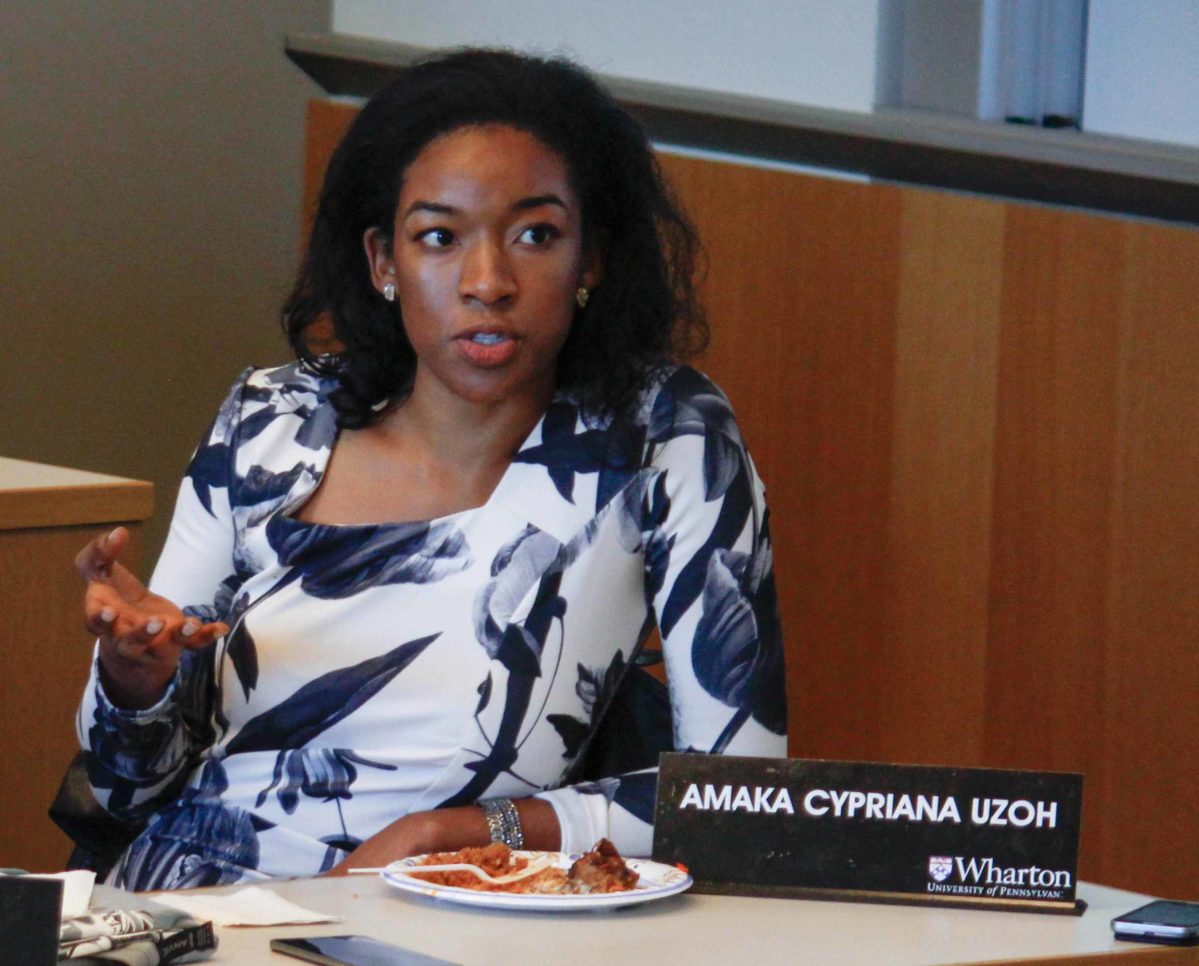
“In the south (of Nigeria) historically, at least for Igbos, the men were in the fields and the women ran the market so they’ve always kind of held the purse and had economic power. Women have been leaning in for a very long time in that part of the country. That said, even though you have women running the stock exchange at these massive companies, at the interpersonal level, there are safeguards that must be taken because there’s still a culture of modesty. It’s a mixed picture, but across the board, I would say women are regarded well and have risen politically and in companies.”
Amaka Cypriana Uzoh, WG’18, is a first-generation Nigerian American who was raised in culturally rich Nigerian households in New York and California and whose parents survived Nigeria’s Biafran Civil War.
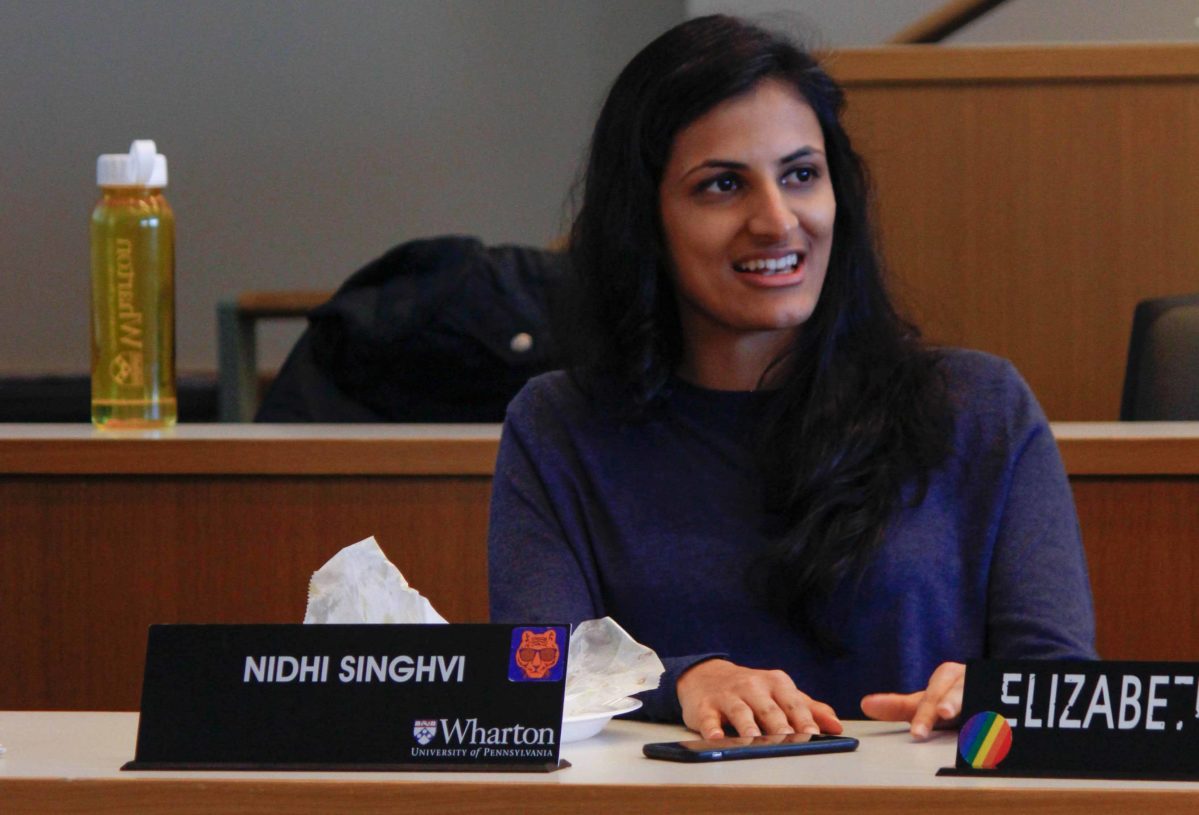
“That culture (where women are encouraged to stay home rather than to work) is still there, especially in small cities in India. I know all of my classmates struggled with it. Their parents would pressure them to get married once they turned 22 or 23, and have a family. So, yes, we are still struggling with that pressure, but it’s getting way better now, and more and more women are working and becoming entrepreneurs even in the smaller cities.”
Nidhi Singhvi, WG’18, an officer for the Wharton India Club, was born and raised in Jaipur, a large city in northern India, and studied at the University of Delhi.
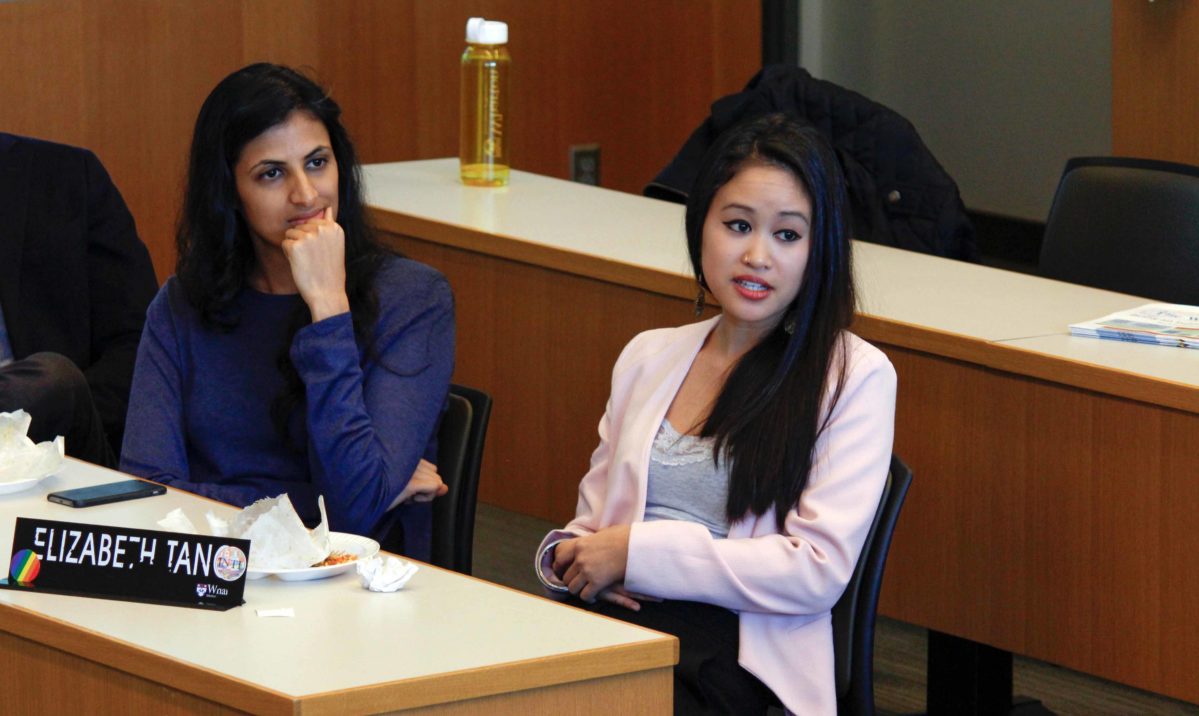
“It’s common for concerns about safety and trafficking — whether it’s labor or sex trafficking — to be focused on countries in the Global South, but a lot of these concerns apply equally to the U.S. There’s a tendency for people in the U.S. not to think about those issues as happening in our own backyard. Sex trafficking is a huge problem here in every major U.S. city. Someone asked earlier, ‘Is Africa safe?’ But it’s just as appropriate to ask, ‘Is the U.S. safe?’”
Elizabeth Tang, WG’17, co-president of the Return on Equality coalition, spent two years working at an anti-sex trafficking nonprofit that serves the women and children of Mumbai’s red-light district.
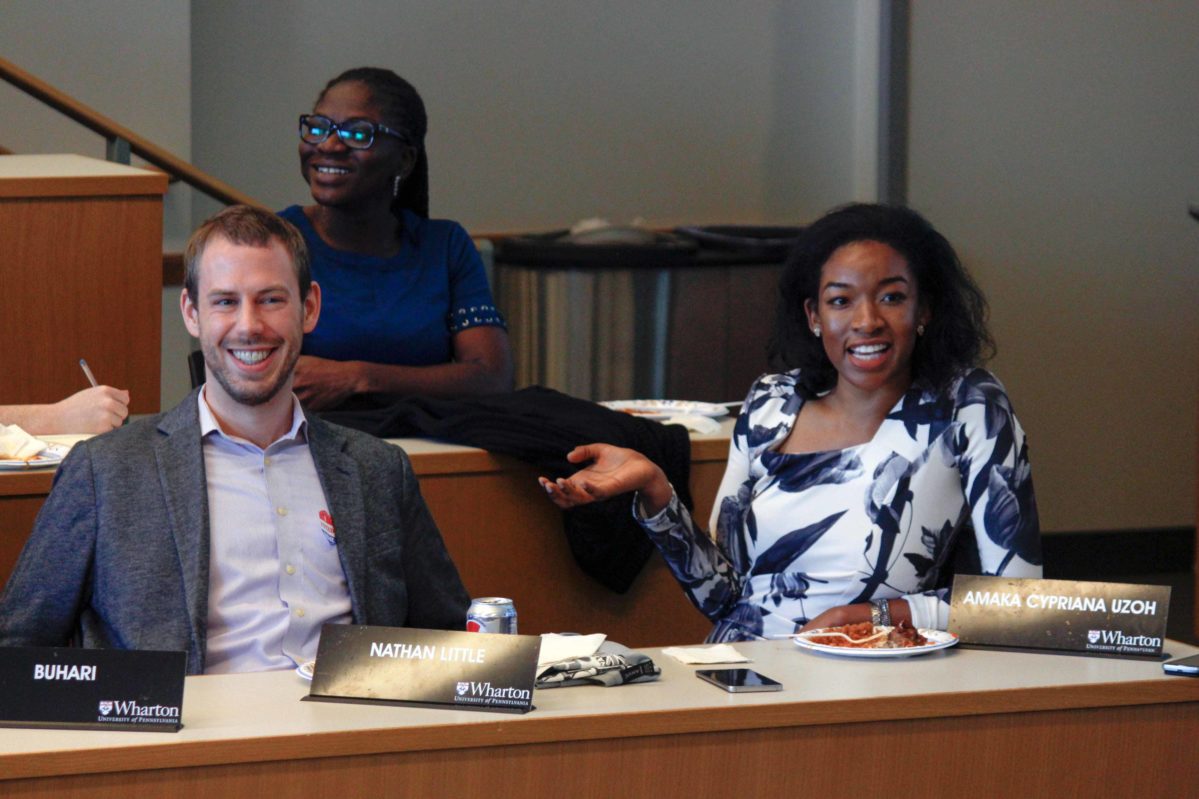
“One stereotype I’ve encountered is that whenever people find out that I had worked in Africa, often the perception is that I was making an enormous sacrifice in terms of my personal standard of living. And the reality is that probably for the majority of folks who are able to be at Wharton, if you’re going to go and live in a place like Uganda, you’re probably going to still end up living in a place that is pretty nice.”
Nathan Little, WG’19, spent two years based in Kampala, Uganda working with Educate, a nonprofit developing young leaders and entrepreneurs in Africa.
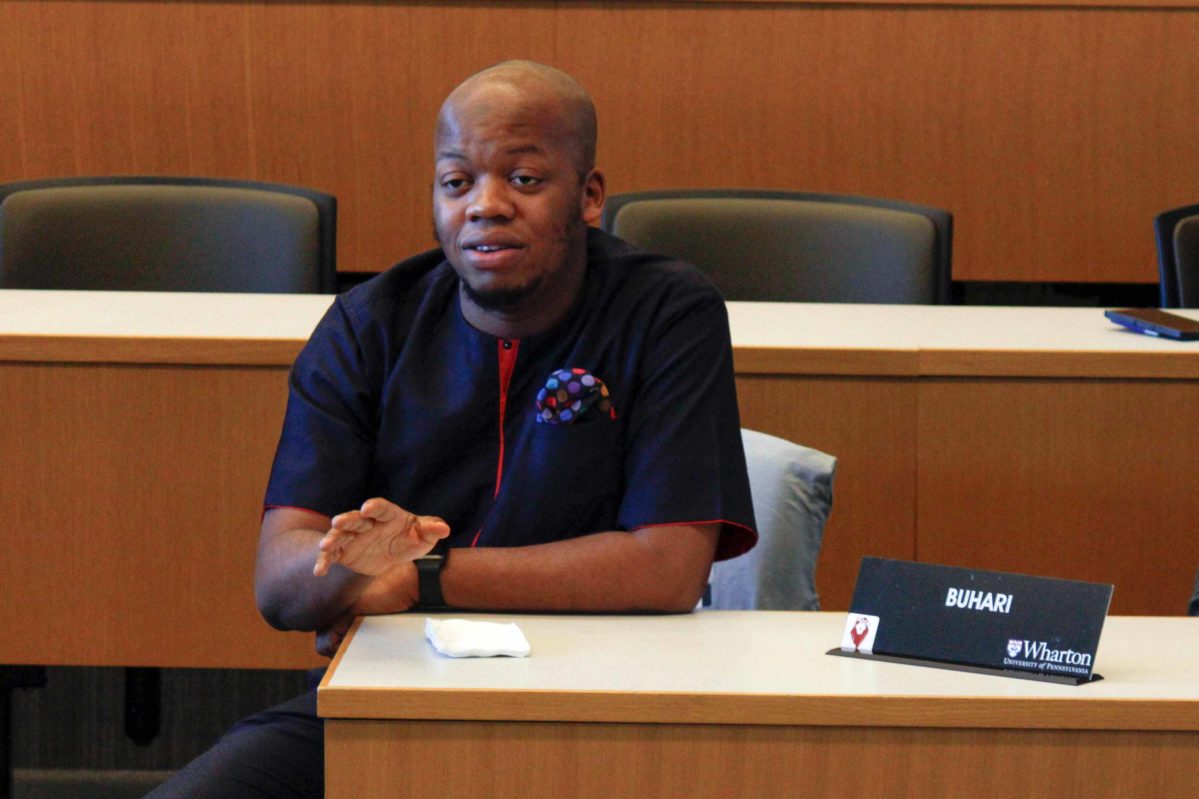
“Soft skills like respect are so important (in Africa), probably even more important than the hard skills. So, in the public sector for instance, you don’t address senior folks by their first name. Instead, you say ‘Sir’ or ‘Ma’am’ or address them by their designations because those small things can make a huge difference in the experience you have in your professional career in Africa.”
Buhari Abdul-Hakeem, WG’18, hails from Lagos, Nigeria, and has extensive experience in emerging markets, especially across Africa and the Middle East.
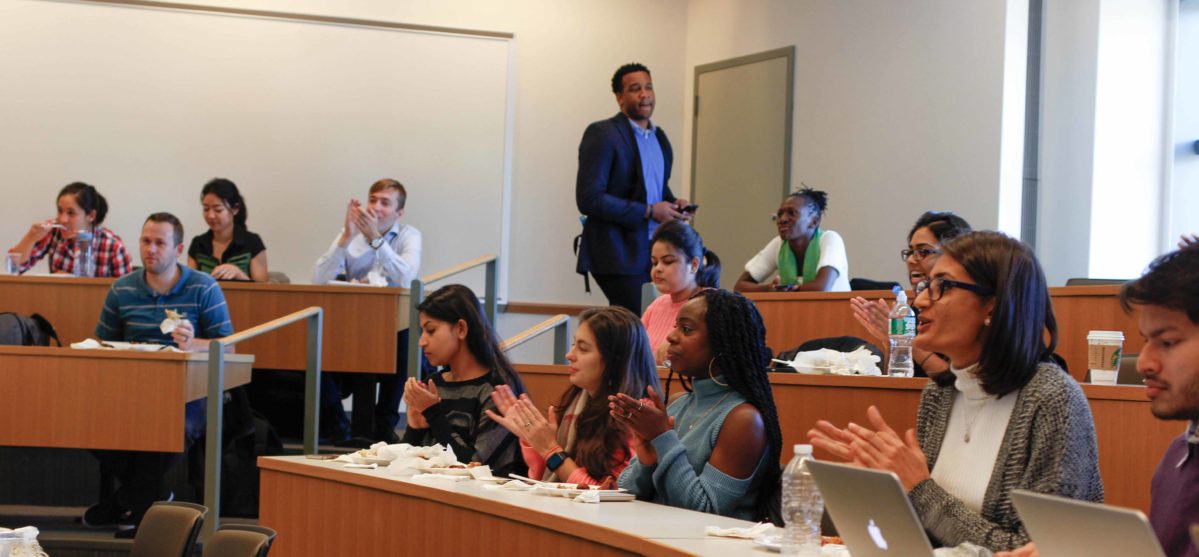
After an hour and a half, almost every seat was still full and questions continued to pour in. “We’ve run out of time, but the conversation doesn’t have to end here — that’s the point,” Adwoa said. “All of us in this room have knowledge about something so if you run into someone and you have a random question, feel free to ask it because we’re better off knowing than not knowing.”
— Colleen Mullarkey
Photos by Teresa Xu
Posted: November 16, 2016


















